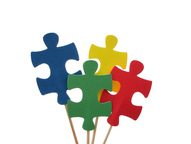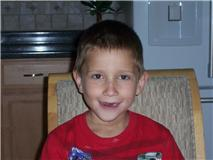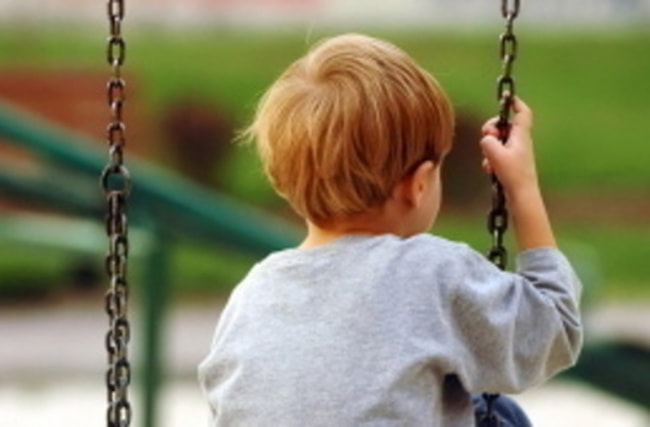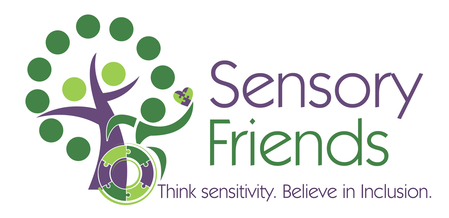Managing the positive behavior support plan is a crucial component for it to continue to work successfully. From the beginning, all team members agreed to commit to fulfilling the expectations of the PBS process.
|
I can’t tell you how excited I am to reach our final segment of this series. It has been an extraordinary experience for our family. Using the positive behavior support process, we have watched Richie’s transformation from being someone who only knew to express himself with aggressive fits of anger to someone who controls that urge and replaced it with other ways to communicate his frustration.
Managing the positive behavior support plan is a crucial component for it to continue to work successfully. From the beginning, all team members agreed to commit to fulfilling the expectations of the PBS process.
2 Comments
All family gatherings are special. The fall season is upon us and brings with it the Thanksgiving holiday. Families come together to celebrate and be thankful for having one another in each other’s lives. Special needs families prepare to celebrate the season’s festivities. Although our experience is a little different, we are grateful for many things.
Halloween is a fun holiday favorite for many kids, but for kids with sensory issues and special needs, it could be a night filled with discomfort, anxiety and fear. I learned over the years with Richie that it was okay to get him to try new things on Halloween, but I would never push him to go beyond his comfort level. My son has autism and with it comes many sensory related issues. This includes changes in routines, fear of sounds, uncomfortable clothing and more. I found these tips to work well with us, hopefully they’ll work for you too!
The word is out! This year, ABLE United started a program that allows individuals with disabilities and their families to plan for the future by saving money and building assets without losing their benefits. You might remember my previous post highlighting the launch of this beneficial program and how you and your family can start saving like we did!
Special needs planning for the future has unique challengesThere is one common concern that causes great anxiety and sleepless nights for parents of children with disabilities. It’s the unstoppable future. Who will care for our children? Where will they live? What will their lives be like when we’re no longer around?
Future planning was never easy for members of the disability community. If individuals and parents of children with disabilities want to keep their Medicaid, Social Security benefits or other disability services, they cannot have savings that exceed $2,000 in cash value. Our choices were limited to either giving up our benefits or the opportunity to save and plan for the future. Putting the Positive Behavior Support Plan in Place
It is very exciting times. We now have a plan of action for preventing, solving, replacing, and managing Richie’s challenging behaviors. What’s even more exciting is that we were also going to teach Richie new skills – skills that had never occurred to us until we started the positive behavior support process.
Developing a Positive Behavior Support Plan
In this process, we have taken the important steps needed for the development of a positive behavior support plan. So far in the Positive Behavior Support blog series, we have:
Part 4: Analyzing Data and Goal Setting - What did we learn?
It was time to gather all the information collected from our PBS team members and begin analyzing the data. Some members of our PBS team were diligent about collecting data and information for two consecutive weeks. I gathered information received from Richie’s ESE teacher, PE teacher and myself. I didn’t collect data and information from all members of the PBS team, but remember we mentioned in Part 3 that even if this happened, we can continue to move forward with the PBS process. The information I did have was plenty for us to review and analyze. All of the forms, information and data we collected were going to help us understand Richie’s behavior. We were going to begin taking the next steps towards creating a successful positive behavior support plan that would work at home and at school.
Gathering Information and Data Collection
In order for us to learn about how we can improve Richie’s challenging behavior, we need to start gathering information and collecting data. This is the most important part of the positive behavior support process, because it’s going to help us to decide on what goals to set, how to avoid certain behaviors from happening, what strategies to use when behaviors happen, what new skills we want to teach, and how we can manage behaviors. This is a crucial part of developing the PBS plan.
What is PBS and Who Needs to be Involved?
The differences in my parenting style between my two children are paramount. I learned quickly that the strategies and disciplinary actions used with my oldest, Samantha (who has no known disabilities), were useless with Richie. Thinking about it now, the strategies I used with Samantha were useless too. I used things taught to me culturally through my own family (spanking, yelling and punishing), then later I tried new strategies like “time-out.” Some strategies worked, most didn’t. How truly successful were my strategies if Samantha’s behaviors continued?
Introducing Richie
Being a parent to my son Richie changed my life in ways I never would have imagined. Richie is my fourteen-year-old son and second child. Richie is on the severe side of the autism spectrum. He is very handsome, tall, has a gorgeous smile and a contagious laugh. He loves to laugh and he finds it most amusing when we repeat the many sounds he makes. Richie loves to play tag - but he loves being chased, he won’t chase you back! He loves to be tickled and he’s kind of thrill seeker. He loves quite a few roller-coaster rides – Universal Studios is his favorite theme park to visit. My son is my joy in this world, but having a child on the spectrum does come with its challenges.

My family and I have gone to many sensory friendly films over the past ten years. Many times, my son Richie would be bored of the movie and either play with his iPod, or want to leave the theater all together. This is important to mention, because my family and I are big Star Wars fans, and for me to have to leave in the middle of it – as the great Yoda might have stated – been a disappointment so great, would have, Hmmmmmmm.

The holiday season reminds us to be grateful for the things we have, and cherish the ones we love. It’s the time of year that makes us want to express our love with gifts that are thoughtful and represent how much we care. For children and adults with autism, gift giving can be difficult. It’s always during the holiday season that I am often approached by family and friends about what to buy my thirteen year-old son, Richie. I don’t mind the inquiry really, it makes sense, as Richie’s preferences and interests change just like anyone else. Please note that I don’t always know what to buy Richie either! The truth is, there is no true guide to the perfect gift for a child or adult with autism. I have to pay attention to the things that interest him and sometimes, it is truly just a guessing game. Some gifts are hits and some, not so much (especially for children and adults who have difficulty with communicating their desires or who aren't speaking yet). It happens to many of us, so please don’t feel bad if your gift doesn’t make the all-time favorites list.

You’re planning to celebrate Thanksgiving, but parents of children with special needs know better than anyone that celebrations like these require a little extra planning for those unexpected, or shall I write – expected tantrums! Let’s focus on preparing for, and avoiding those challenging behaviors. Let’s try to replace them with new traditions and fun activities.

For many years, I had to deal with the stares, the snide remarks, the cruel comments, and the unbelievable acts of ignorance towards my sweet son– alone. It was awful. I remember having to be on the defensive all the time, asking people to excuse my son’s behavior, or apologizing for his confusing or seemingly frightening movements. It was so important to me that Richie was involved in community activities, and that he was accepted and always included in family activities. Still, it was challenging, because I could always count on the insensitivity and cruelty from many people, which was always ripe and plentiful.
It’s natural for children with special needs to only want to engage in preferred activities. Who wants to exercise when they can relax and play with their phone or iPad? It may take a little creativity and positive reinforcement, but we have to try to include a healthy balance of exercise, good nutrition, and community engagement. I know it's easier said than done, believe me. I started taking small steps to help our family with developing better eating habits and adding more exercise to our daily routines. Even the smallest changes can make a huge difference. We replaced high sugar drinks with water, added more fruits, vegetables and salads to our meals, and we try not to snack late at night.

My son, Richie, is thirteen years old and has autism. Over the years, it was hit or miss with planning birthday parties for Richie. Richie’s first few birthdays were successfully celebrated with intimate family at home. For his fourth birthday, we tried Chuck-e-Cheese. It wasn’t terrible. We booked the party as early as possible – 10:00 am, as we were told that this time slot was best for having the least noise and crowds. He had fun, but there were many young toddlers there in the morning (who tend to scream), and this was a sensory nightmare for Richie and his invited classmates. Over the years, we’ve rented bounce places, shelters at parks, and most recently, we held backyard parties with rented moon-houses, themed with Richie’s favorite character that year. In time, of course, Richie’s preferences changed. We needed to plan our celebrations around his evolving preferences.

I remember the first time I ever heard the word “Autism.” I was sixteen-years-old when the movie, “Rain Man” was released. I didn’t go to the movies to see it, but I did rent it on VHS from my favorite video rental store around the corner. I remember feeling deeply sorry for Dustin Hoffman’s character at first, but as the movie went on, I enjoyed his rigid, but subtle charm. The brilliant movie gave us a glimpse of the challenges experienced by autistic people and those who care for them. And despite the many stigmas attached to the disability, like many viewers, I was drawn to Hoffman’s character and I was genuinely rooting for his happiness. But once the credits rolled up the television screen, I wouldn’t mention the word “Autism” again, nor would I hear it again – until the year 2004.

It wasn’t until the sad passing of my son’s grandmother, that I realized what few resources were available to assist our family with explaining the loss to my son, Richie. Richie has autism and relies heavily on the use of pictures for choice making and requests, he also uses gestures and body language for expressing discomfort or happiness, and hand-leading for desired items or activities. Richie, at thirteen-years old, had never lost anyone close to him before. When his grandmother was in the hospital, his father wondered how we would explain this to him. 
Each year, the Fourth of July holiday brings us together as a nation to commemorate our adoption of the Declaration of Independence. Many of us celebrate this patriotic holiday with picnic barbecues, trips to the beach, and the exciting views of the sparkling, shimmering and crackling sounds of bright fireworks. As a family, we’ve always enjoyed watching the fireworks, huddled together in silence and awe of the spectacular light show in the sky. It took years of trial and error to be able to continue this tradition with our son, Richie, who has autism, but absolutely loves all fireworks shows – despite the challenges he has to overcome. For many families of children with autism, the fun event is often cut short due to sensory melt-downs triggered by large crowds, smells, and long stretches of uneventful wait-times until the anticipated light show begins. Some children enjoy the visual effects, but struggle with the sound of crackling, loud booming explosives.
|
Author: Christine Goulbourne
|
An Important Note From Sensory Friends:All information posted on the website is for informational purposes only. Please confirm and review information carefully with your professional health care provider before considering a new regime or practice. The information provided is not intended to replace medical advice offered by physicians. Sensory Friends only wishes to provide information, resources, options and networking opportunities to its members and site visitors. © 2023 Sensory Friends
|
SubscribeJoin our mailing list today!
|
